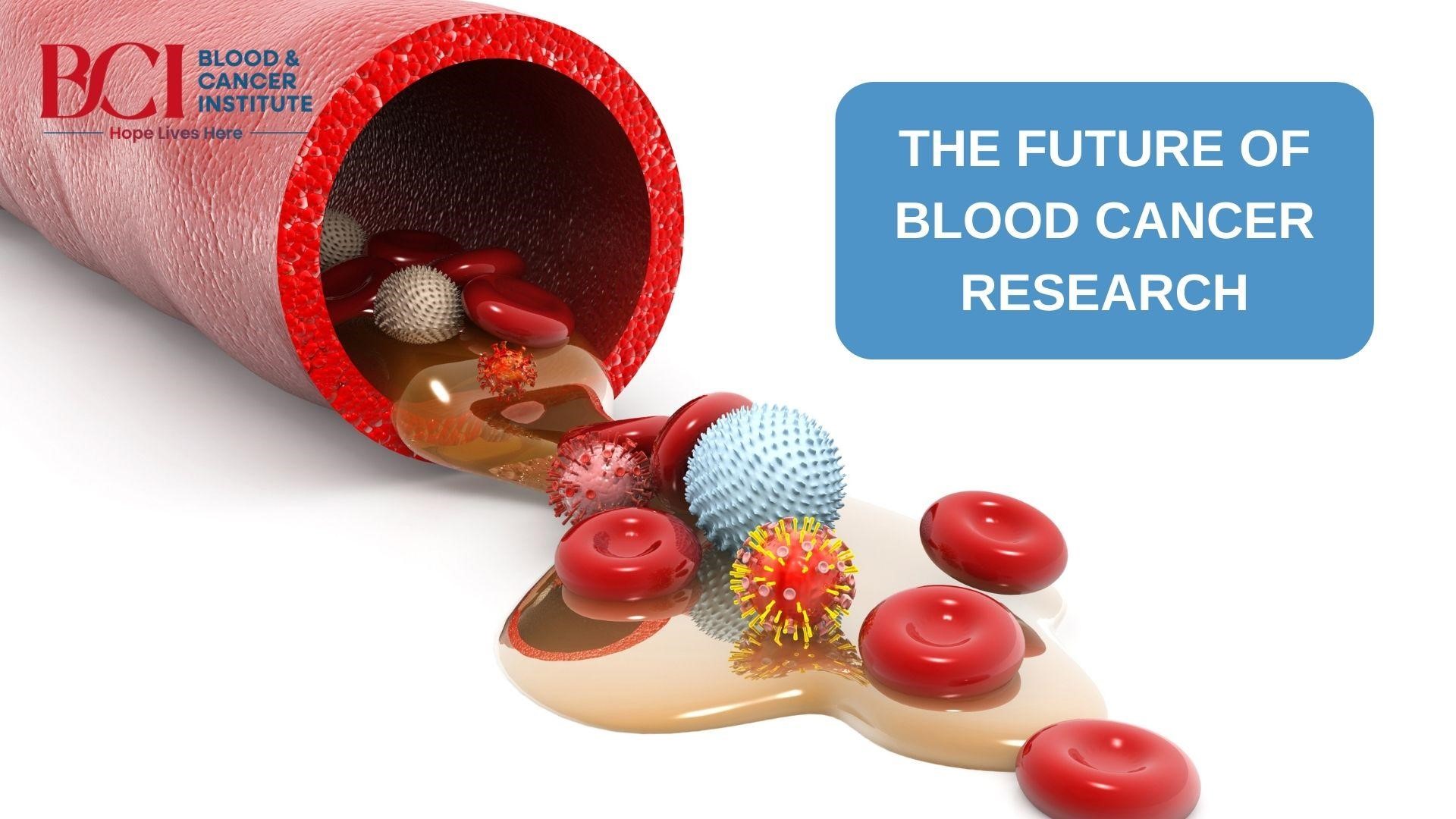
- By : BCI
- Blog
- Comments: 0
The Future of Blood Cancer Research: Promising Trends and Innovations in 2024
Blood cancers, affecting millions worldwide, have seen a concerning rise in incidence within India. However, ground-breaking developments in research are offering new possibilities for treatment and care.Our Blood cancer specialists in Surat at BCI- Blood and Cancer Institute, are already utilizing some of these ground-breaking treatments for treating cancer. This blog post explores the exciting advancements in blood cancer research that are shaping the future of oncology.
Understanding Blood Cancers
Blood cancers, which include leukaemia, lymphoma, and myeloma, are malignancies that affect blood cells and bone marrow. While these cancers can occur at any age, certain types are more prevalent in specific age groups. The increasing prevalence of blood cancers in India underscores the critical importance of ongoing research, as new discoveries have the potential to save countless lives and improve the quality of life for those affected by these diseases.
Precision Medicine: Tailoring Treatment to the Individual
The era of one-size-fits-all cancer treatment is giving way to a more nuanced approach known as precision medicine. This innovative strategy utilizes genetic information to guide treatment decisions, allowing for more targeted and effective therapies. In 2024, local researchers are delving deeper into the intricate world of cancer genetics, identifying new targets for therapy that could lead to more effective blood cancer treatments in Surat with fewer side effects. These researchers are making significant contributions to this field by studying genetic variations unique to our population, which could ultimately improve treatment outcomes for patients across the Indian subcontinent.
Immunotherapy: Harnessing the Body's Natural Defenses
Experts from BCI- Blood and Cancer Institute, a well known cancer hospital in Surat, reaffirm that the human immune system is a powerful ally in the fight against cancer and immunotherapy enhances its cancer-fighting abilities. This approach has shown remarkable promise in treating various blood cancers. As we move through 2024, new immunotherapies are in development, aiming to be more effective and less toxic than their predecessors. Some of these innovative treatments target specific proteins on cancer cells, while others focus on enhancing the function of immune cells. Clinical trials for these cutting-edge therapies are currently underway in India, offering hope to patients who have not responded to standard treatments.
CAR T-Cell Therapy: A Revolutionary Approach
Chimeric Antigen Receptor (CAR) T-cell therapy has emerged as a game-changer in blood cancer treatment in Surat. This innovative approach involves modifying a patient's own immune cells to recognize and attack cancer cells more effectively. In 2024, researchers are working tirelessly to improve this therapy, extending its efficacy to solid tumours and reducing its associated side effects.
Artificial Intelligence in Cancer Care
The integration of Artificial Intelligence (AI) into healthcare is transforming the landscape of cancer research and treatment. Hemato-oncologists in Surat say AI is accelerating drug discovery processes and improving both diagnosis and treatment planning. Researchers are using AI to analyse vast amounts of data looking for new patterns and treatment opportunities that were previously undetectable. This technology might even predict which patients will respond best to specific therapies, paving the way for more personalized and effective treatment plans. India's thriving tech hubs are making significant contributions to this field, developing AI tools tailored specifically for our healthcare system.
Liquid Biopsies: Advancing Non-Invasive Diagnostics
Traditionally, detecting cancer often required invasive procedures, but liquid biopsies are changing this paradigm. These innovative tests can detect cancer from a simple blood sample, offering a less invasive alternative to traditional biopsies. Researchers are refining these tests to make them more sensitive and accurate, which could lead to earlier detection and better monitoring of blood cancers. Some Indian hospitals are already offering liquid biopsies, and as the technology continues to improve, it has the potential to become more widely available across the country.
Nanotechnology: Microscopic Solutions for a Major Problem
Nanotechnology is opening up new possibilities in cancer treatment, with researchers developing nanoparticles that can deliver drugs directly to cancer cells. This targeted approach has the potential to increase treatment effectiveness while simultaneously reducing side effects. Some nanoparticles are even being designed to aid in earlier cancer diagnosis.
Personalized Vaccines: The Next Frontier
Cancer vaccines represent an exciting new frontier in blood cancer research. Unlike traditional vaccines, these are designed to treat existing cancers and are personalized to each patient's unique cancer profile. While still in the experimental stages, early studies have shown promise for leukaemia treatment in Surat. Researchers are working diligently to enhance the effectiveness of these vaccines and streamline their production process. Although it may take time before they become widely available, personalized cancer vaccines offer hope for a future where blood cancers can be treated with unprecedented precision.
Conclusion:
While many of these advancements are still in the early stages of development, they offer a glimpse into a future where blood cancers may be more effectively managed or even cured. In the meantime, it's crucial to focus on what we can control: regular check-ups, awareness of blood cancer symptoms, maintaining a healthy lifestyle, and participating in cancer screening programs. For those diagnosed with blood cancer, exploring the option of clinical trials could offer access to cutting-edge treatments. As we continue to make strides in blood cancer research, the future looks increasingly bright for patients and their families.
